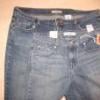Search the Community
Showing results for 'alcohol'.
Found 17,501 results
-
No shame Heather!! Everybody has some addiction or quirk - some demon to deal with - ours just happens to be food/weight! You don't have to do it on your own!! It takes a village to raise a child - meaning we all need help & support. This is harder than being an alcoholic or drug addict, if you ask me. try giving a crack head 3 rocks or an alcoholic 3 drinks - 1 for breakfast, lunch & dinner & see if they can stop! They don't have to drink or do drugs to survive but we still gotta eat! We can't just forego it like they can!!!! You are well on your way, girlfriend!!
-


Kaiser Richmond Pre-op
Desperate1 replied to 123008's topic in PRE-Operation Weight Loss Surgery Q&A
I'm gonna print this out & show it to her!! SMART LADY. I truly hope she gets a grip on it before it gets way out of hand!! And ur right, her body has compensated - she can eat ANYTHING - even sweets & alcohol - no dumping symptoms. I'll find an RNY support group for her. And, Tina, you better get use to that male attention, girl - i don't see it going away any time soon - It must suck to be beautiful -
I, personally, feel like counseling can only do good, (if it's a good counselor). So, if you're questioning needing counseling, seeing one is probably a good thing... even if they are just a sounding board to your own fears. Sometimes just getting things off of your chest helps. I have a friend that was not ready to be happy. She had been very heavy since the age of 11 and finally got a gastric bypass. She had been in counseling for years but never shifted, she was always doom and gloom and verging on hypochondria. She dropped weight, after the bypass, in no time but is now an alcoholic. The moral of this story is that everyone deserves to be happy and, if you're not, counseling will help *if* you're receptive to it and READY to heal. She still isn't ready, and maybe never will be, but I hope she will at some point. (I always recommend the "Dance of Intimacy" to anyone that is feeling badly, especially if family, or relationship, issues are part of the problem. It's by Harriet Goldher Lerner, I believe, and it is AWESOME!) I hope you also will feel like you deserve to be happy and healthy and that you can work through this and be pleased with yourself. For starters, maybe focus on the fact that you have lost weight and kept it off, that's awesome! :thumbup: If you focus on what you HAVE done and what you CAN be proud of things will shift and pessimism will slowly be blocked by positive reinforcement. Focusing on how poorly you have done and what you still haven't accomplished, though, is definitely a self defeating cycle. I hope this helps and isn't "preachy". I come from a family of counselors so this type of discussion is a norm at family gathering. :wink: My husband was floored when he moved up and saw what dinner was like at our house! LOL Keep up the great work, of sustaining your weight, even if the positive thinking and counseling just help you become less stressed that should help you break the barrier. Best of luck with this wonderful tool and being happy, I am sure you can do it. Shannon
-
WHOO HOO CC! That is fabulous! Thanks Susan...age is a number. So is weight. As are calories, minutes of exercise, and alcohol content. Numbers are bad. :smile: Haven't a clue what voting you are referring to, but good luck! But you will be crying for joy, right?? Last of the children is grown...independent etc. You are free!!!!!!!!!!!!!!!!!!!!! Morning all! Thanks be it is Friday...and peaking out from behind the huge black clouds is a bit of sun! I am hoping for sunshine this weekend....I wanna go play in the dirt!! Its been torrential rains for 3 days now, time for a bit of dry weather. hope all are doing well.
-
Well, I feel like I'm back on track and have cut back on snacking and alcohol. I lost 2 lbs this week. Last Friday: 204.5 lbs This morning: 202.5 lbs Slowly losing my way to 200 lbs
-


psych eval -what to expect
ayyypapi replied to katwmn63's topic in PRE-Operation Weight Loss Surgery Q&A
I think it depends on the doctor? I was so nervous about mine because I was afraid of what he was going to ask and what not. It went by really easy, didn't even last 10 minutes. My surgeon recommended him because he promotes the lapband. He asked me how I felt when I went to a restaurant like if I felt insecure or what not. History and other things I've tried (weight watchers, atkins, etc). Family history of alcohol/drug abuse and if I use either. If I was ever sexually abused and stuff like that. If anything we talked about where I go to school and how the dorms and everything is more than anything else. He was a really nice and friendly guy who said that I'd make a great candidate for it. -
My doc says no alcoholic drinks for 6 months to a year and no caffein ever again. I've started drinking de-caf tea and I'll probably go to de-caf coffee when it gets cold again. I'm putting lemon or lime in my water and it helps so much. GB
-
I guess my doc is a lenient one. I am drinking coffee and any number of different alcohol drinks and having no problem. He said ok to the carbonation too but I just know it will be a painful burp issue and I just dont crave it. There is such a HUGE variability in everyone's instructions , I think that's kind of strange but who am I to say? Cheers!!
-
I have to also be careful that they don't have any of that sugar alcohol junk in them. They cause so much gas that it's almost unbelievable.
-


Messed Up, No Excusses, Ate Wrong Food, Moving On!
SpideyMom replied to Juliewants2bthinner's topic in LAP-BAND Surgery Forums
Julie, my prayers go out to your nephew and sister. My niece had a similar incident 5 years ago. It was very, very traumatic. I am an emotional eater. I think it must have taken a LOT of willpower for you to stop at just one bite of pizza and two bites of chicken. Good for you! Pat yourself on the back for not turning to pints of ice cream or bottles or alcohol or other high calorie things that could have easily slid down and dulled the pain. You're a strong woman. Hang in there. You will do just fine! You're surrounded by a lot of good people here on the Mayo Banditos forum. :crying: -
I was told we were not allowed caffiene and alcohol and some of these shakes include them. i guess it could always be substituted. i know they make coffee flavored protein powder
-
Hi there this is Maria (the newbie) I wanted to let you all know that I went to my orientation yesterday in Richmond and I have my 1st appt with Dr Baggs on July 10. I am so excited and was interested in joining one of the support meetings in Sacramento, Do you know when and where is the next one? Also, I am accepting any words of support and encouragement right about now as I am starting the 10% weight loss I need to have by my 1st visit with the Doctor. It is the hardest thing I ever done, but I am cutting everything the sweets, alcohol, carbs!! I'm sure you all feel me,since youve been there done that..
-


Anyone know of Dr De Bruyne Chris
moneyp23 replied to susanlondon's topic in Weight Loss Surgeons & Hospitals
Hey Tanyac, I'm glad i'm not the only one, but your right, it's a natural thing and if your anything like me I always think about every outcome, so it's not a bad thing!!! I can't wait to hear all about how you got on!!! Please get in touch when you get back and give me every detail, I'm terrible, i just want to know everything about it, so there's no surprises!! Gary, sounds like the ice lollies are a fab idea.....I have heard any vomitting and excess :cry_smile: alcohol can cause huge swelling around the band.....Change of drink?! :thumbup: heh.... Good luck to everyone going out tomorrow!! Penny x -
OMG OMG OMG OMG OMG OMG OMG OMG!!!:mad5: Meredith!!!!!!!!!!!!!!!!!!!!!! I am soooooooooooooo happy for you!!!!!!! I can only imagine the he!! of waiting. Congrats! Hip hip horrrayyyyy! I remember calling my insurance company BCBS-FL Blue Choice.... I had THE nicest lady on the phone. I could almost hear her voice crack when she had to tell me I had an exemption and that God himself couldn't get them to approve me! But thank God himself that I was blessed with the best DH in the world!!! He said, if you can do without extra this year... (and maybe next)... then let's do it! We are both so thankful we made the decision. It's the best investment in OUR life that we have ever made! EVERYTHING... is better! Hi everyone~ Glad to hear everyone had great celebrations with family and BBQ. Janet, I hear what you are saying that the band should keep me ok at cookouts. I still find it hard to be at food events. I don't have family in this state- around family it would be no big deal. But I went to a house party a few weeks ago and there was not ONE band friendly thing there except fruit. They had hot dogs and popcorn, funnel cakes and cotton candy (carnival stuff). They served alcohol and sodas. I was STARVING by the end. Just couldn't go somewhere right now where I have no control over the menu. In time it will be ok. I still have to be careful of trigger foods and things that get stuck. I was up 1-2 lbs for the last few days... but it was TOM, etc. Now finally down 1 since last fill 12 days ago. (really down 3 if you count up 2..LOL). My next fill is supposed to be Thursday. I had such a time the first 5 days of this last fill... so am not sure what to do. I had two PB and had to switch back to mush and liquids. Then had two days of feeling tight and pain with eating 1/2 c of food. But because I did so much mush and liquids... I had a hard time staying in my calories. Went way over Protein one day b/c of protein supplements. Last 4 days I feel good. Nothing getting stuck. No pain after eating. I feel I could still eat after a normal serving but am so afraid after those PBs and stucks.. that I stop. I feel like I could MAYBE benefit from a tiny fill.. but think I will wait a week. I left the RN a message today and she didn't call me back. Lots of thunderstorms here in FL. Nelson HATES storms and is glued to my side when there is thunder. He's asleep now. Whew.... time to relax. DH on call. Time to surf (the tv) and fold laundry. Peas out! Laura
-
Mine was even easier. I was really scared going into it and it didn't even last 10 minutes!! The first three minutes he was on the phone with someone else and then he just asked about where I go to school, how is my home life, any history of sexual/alcohol/substance abuse in my immediate family, and my opinion on the surgery. It was so easy lol.
-
Had my psych test today. It was not at all what I expected from what I have read of others experiences here. I had no pen & paper diagnostic testing at all. Just spent about a half hour w/ a psychiatric nurse practioner. She asked me to explain my understanding of the surgical procedure and the frequency and sort of follow up required. She asked me why I wanted to have this surgery, if I had ever been able to lose weight on my own. Asked about family psychiatric history, if I ever thought of suicide,if I ever thought of killing anyone, if I ever hallucinated, asked whether I had a history of eating disorders, and if I had a history of drug/alcohol abuse. Then she did some simple, verbal evaluations of my cognitive functioning. This consisted of asking me my name, where I was, and what sort of surgery I was pursuing. Then she said three words and asked me to repeat them back to her. Told me she would ask me again later, and in the meantime would distract me with other questions. She asked me to spell a word forward and backward and had me do some simple arithmatic in my head and then asked me if I remembered and could repeat back the 3 words she had given me earlier. In the end, she said I did fine and that she thought I was a good candidate, psychologically speaking, for the surgery. YAY! That was my last pre-op test! Now I just have a follow up appt. with the pulmonoligist to get the results of my sleep study and I have to await the nutritionist's stamp of approval. :smile:
-
Don't give up Candra! Your body is rebelling & hanging on to water in an attempt to protect itself from startvation . . this is, after all, medically-supervised starvation! Cut out the carbs & double your water, and you will lose 5! Are you logging EVERYthing you eat? I log every bite at www.caloriecount.about.com, every day. Thanks Christine, good to know how long we will be there for . . . now does anyone have the address of the Pinole MOB? It's apparently too new to show up online . . . another 1/2 hour with Robin, oh joy she will want my food log again and I leave to camp out at the NASCAR race the Thursday before, then my daughter's wedding up north of Redding on Sunday, I won't get home until Tuesday and will be puffed up like a balloon from heat, salt, and (shhh) alcohol . . . and she'll want a food log??? Maybe I'll bring her one from the week before, since I won't be near a computer to get online & log what I eat. . . . So my fill is working so far, my calories have been cut almost in half! The amount that I eat is also cut in half, lol. I am .2 lbs away from 80 lbs. lost this morning! WOO-HOO!!:smile: Riley
-
I eat because i am a food addict. I LOVE FOOD. Food for me is the same as alcohol or drugs or cigarettes are for some. The reason the band has worked amazingly well for me is that it physically stops me in my tracks from being able to over indulge in my addiction. Does it stop me from wanting to eat (aka head hunger) HELL NO. Does it stop true hunger, not for me, what the band does is allow me to eat a small portion that is just enough to satisfy the real hunger and be done.
-


Trying to understand fatty liver
KOLaficionado replied to KOLaficionado's topic in PRE-Operation Weight Loss Surgery Q&A
Hmm interesting. I do know that there are gobs of fat around the liver in overweight people, and I can see how that could be hard to see and work around. If you google fatty liver(images) the liver is clearly larger and paler in color than healthy livers. There are several causes for fatty liver, but the appearance is basically the same for all. The fact that it's paler in color would go along with actual fat lipid deposits, but I have no clue what color the sugar stores would lend it... I'm on day four of my pre op diet and my instructions are to eat any Soup I want however much I want, yogurt, low fat cottage cheese, and sugar free drinks. I'm opting to do a very low carb diet because I was a heavy beer drinker utill 7 days ago. It just seems that I would consume too many carbs, sugar AND fat with the diet he recomended. I'm still going low fat, but I'm worring more about the carbs and I have been enjoying eggs:redface: I guess that's why I'm curious about what actually makes the liver smaller. If mine is inflamed due to alcohol as well as my bad diet, I should probably eat a lot less fat as well:frown: -


Band plugged with mucus (sorry TMI)
RolledFondant posted a topic in POST-Operation Weight Loss Surgery Q&A
Hi everyone, I am new to the forum, but almost two years out with the Lap band. It has worked really, really well for me and so far I have lost 78 lbs. and I have about 30 left to go (I have been plateaued for over a year- grrr!). Anyhoo, I have had a sinus infection for the past week and a half after having the flu and I have noticed that for the last week or so I have had a hard time keeping ANYTHING down, even fluids. It's like my band it too tight or everything is getting stuck. I think it is from having so much mucus and goo running down my throat that it is plugging up the band?? Almost everything is coming back up, even Water, juice, milk, Protein drinks, etc. I am almost back on a clear diet and it is very frustrating. I am on antibiotics, Sudafed, Claritin and the band problem isn't getting better... Has anyone else every experienced this? I have even sunk to having a glass of wine tonight hoping that the alcohol would relax the esophagus enough that I could get some Soup down, but about half a glass down and it came back up. I would hate to take the trouble to go all the way into my doc and get loosened, pay the big co-pay to have it go away in a couple days, then have to back and get tightened again, but I have hardly eaten anything in days. I. Am.SO.Hungry. Help! I am getting desperate and I am miserable. Anyone have any experience with that and have any good ideas?? Thanks in advance!! -


Please help, so confused! :-(
Cassy replied to Want2BeThin's topic in PRE-Operation Weight Loss Surgery Q&A
Based on my experience and knowing several people with different experiences when compared to mine...I think you have to know the following and be ok with knowing this for yourself. 1.) The surgery is a personal decision and if you decide you are ready to go for it because you have to make a change for your life then you are ready to do it and do it right. 2.) You must understand that while it sounds like magic, it is not. It will not be magic...waking up and all your weight is gone overnight. It takes time. The normal weight loss with no working out and barely eating right is about a quarter to a half a pound a week at best. IF you eat good but don't exersize much then you might get double that. IF you exercise and eat better at a gradually increasing rate then you will hit the one pound to two pounds a week rate. Even with all of this you are going to be working on changing your metabolism as well. The longer you've been obese - the longer it will take to change this. (IN my case it was 25 years of being over 100 pounds overweight). 3.) The longer it takes you to learn how to chew and manage the band rules - the higher your changes of causing yourself problems associated with eating too much, too fast, the wrong things, wrong combos, etc. (i.e. all the things people are complaining about...) Many are caused by user error. 4.) Your health care provider will probably seem like they are slow to fill you and they will tell you that you are doing fine. This will be infuriating because you will compare yourself to what you thought would happen or to what others experiences have been. You have to realize that just filling you up to let nothing through will cause more damage than not having a band at all because you have no re-learned eating and timing and choices yet. IT takes a great deal of time, trial and error, trying and re-trying in different situations to re-learn how to live and eat in a healthy way. 5.) When you first get your band, your mind will not be changed like your stomach...again, it takes time to reset and unlearn bad behaviors. 6.) Somewhere around the 6-8 month mark - you will start to view food differently. This is about the same time that your fills should be catching up with your brain to have the tool working to help you think about food differently (i.e. food is not a reward system or something to do when you're bored). You start to only eat because you know you need to or because you really and truly do feel hungry. 7.) Somewhere around this time you will have a bad episode with alcohol that will teach you that you no longer have tolerance for a lot of it. NEgative reinforcement of what you have already been told re-establishes the new eating pattern...just like the PB'ing that you see people talking about here. THe only time I have trouble is when I blatantly disregard the rules and then you know I remember it next time or the time after that when I have a bad episode. It's all learning. You just have to commit to it taking time and effort. What I can tell you without a shadow of a doubt is that the two years of saving money so I could pay for my surgery in cash (insurance wouldn't pay) was the best decision I made and I think it made me more dedicated to making it happen because it wasn't given to me on a silver platter. (At least for myself I think this has been a contributing factor). Best of luck on your journey! -


help! i dont know if i am having a band problem or if i am sick?
tiggerfan0464 replied to skinnybyrd's topic in POST-Operation Weight Loss Surgery Q&A
I would recommend to call your doctor. also the alcohol could have irritated the stoma. I didnt have a drink until 3 or 4 months out. kathy -
Hi There, My Doc says to try anything that I want and I will find out just what works and what does not. I have found that soda is okay or carbonation is okay but in small amounts. I get a feeling of being bloated that lasts a while. I drink wine but try to keep it to a very minimum! Like Band Groupie says everything in Moderation. But what you really need to know is that all of these tasty drinks are empty calories and you will pay for them in not loosing weight or having it slow down. I have found this to be true for myself. I have slowed way down on the weight loss and I am rethinking my need for Alcohol! Good luck! The Skinny Margarita sounds really really good.
-
Oh Lingling! I am so so sorry about that! I almost had an experience while we were on vacation. I had too much to drink on our last night and I was starving. That really dampers your control over how big your bites are, how well you chew etc. Well, my dear friends (and S.O.) very kindly pointed it out. I had an agreement with the S.O. that I wouldn't get any lectures about how or what I ate. So, when they all said something (bunch of nurses!), I heeded their advice and stopped. I'm not sure what would have happened if I had kept on eating. I guess that me and alcohol aren't too good a mix right now. I don't drink a lot any way. But, I have gotten stuff stuck (a little) and it hurts like a big dog. Really makes you not want to do it again...hope you are better now. I always have to learn the hard way on certain things.
-
ok the alabama meet and greet is now set in stone. details is as listed below. place - springvalley beach food there. and you are allow to bring food in the park if you would like to. they do have Lifeguards on duty. they are located 2 miles north of Blountsville off of Hwy 231 on County Road 55. you can map Quest it if you need be, if you have never been there like me. and remeber.... No alcohol is permitted. No diving is permitted. this is going to be a family meet and greet so bring your boyfreinds,husband,wifes, girlfreinds, and kids. and also please have a good time. this is what this is all about. meeting everyone and enjoying the day. and remember they have alot of pools and slides to enjoy so bring the swim suits :w00t: and enjoy. :wink2: this is a list of people coming so far. i will update it when new people tell me they are coming. 1. jason r,wife,and 2 kids 2. kaninag and husband 3. fordgal88, husband, and kids 4.swneighbours 5.gone 4 ever 6.naynayto2, daughter, and grandson 7.venzwife 8.southern missy 9.debbut ok if you are going to bring someone thats not listed please let me know.















